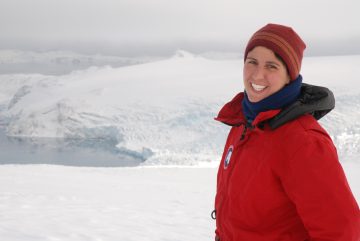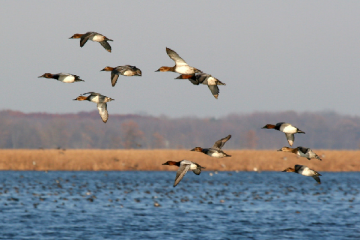IRES Seminar Series
Time: 12:30pm to 1:30pm (every Thursday)
Location: AERL Theatre (room 120), 2202 Main Mall
Can climate change move mountains?
Abstract:
Climate change is causing more than warmer oceans and erratic weather. It can also change the shape of the planet. Glaciers are a fundamental link between climate and the tectonic and surface processes that create topography. Mountain ranges worldwide have undergone large-scale modification due the erosive action of ice, yet the mechanisms that control the timing of this modification and the rate by which ice erodes remain poorly understood. We find a wide range of erosion rates from individual ice masses over varying timescales, suggesting that modern erosion rates exceed long-term averages by two to three orders of magnitude. We also see that glaciers in Patagonia erode 1000 times faster than they do in Antarctica today. These modern rates are likely due to the dynamic acceleration of these ice masses as air and ocean temperatures warmed and they retreated over the past few decades. The repercussions of this erosion add to the already complex effects of climate change in polar and high mountain regions. Shrinking and accelerating glaciers destabilize slopes upstream, increasing the risk of landslides, and deposit more sediment in downstream basins, potentially impacting fisheries, dams and access to clean freshwater in mountain communities. And the dramatic increase in modern erosion rates suggest that glaciers in the Canadian Arctic, one of the most rapidly warming regions in the world, are on the brink of a major shift that will see them speeding up and eroding faster as temperatures warm above 0ºC.
Bio:
Michele Koppes is an Assistant Professor in Geography at UBC, a Canada Research Chair in Landscapes of Climate Change, a faculty affiliate at IRES and a Senior TED Fellow. Her passion is forensic geomorphology: the art of reading landscapes to decipher the forces that shaped them. Her particular expertise is in glaciers, and their impact in shaping mountains and polar regions at a variety of time scales, from last year to the last million years. Her research focus is two-fold: to determine the efficacy of glaciers as agents of erosion, and to determine the climatic and oceanic drivers of glaciations in high mountains and coastal settings. She has current field projects in high places all over the world, from BC to Patagonia, Alaska, the Himalayas, Greenland and Antarctica, where her team combines detailed field observations with numerical modeling of ice-ocean dynamics and glacier mass balance.
Michele Koppes is an Assistant Professor in UBC Department of Geography and is also a new Faculty Associate in IRES.
Seminar video unavailable due to technical issues.


Photo credit: Dominic Sherony from flickr/Creative Commons